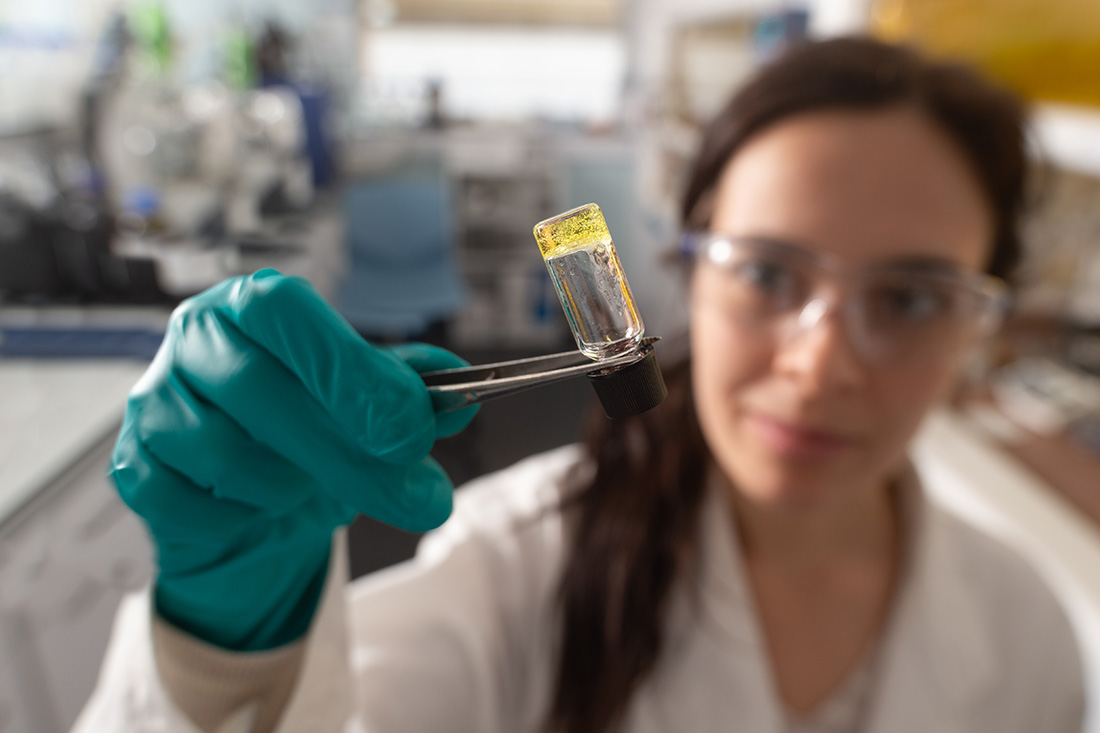
Our chemistry bridging program can help you meet the requirements to undertake tertiary-level studies.
Successfully completing the chemistry bridging program will provide you with the assumed knowledge in chemistry for QUT courses and meet the science prerequisite for courses in education. This program may also meet assumed knowledge or prerequisites for other institutions.
For the assumed knowledge or prerequisite subjects for QUT courses, check our guide for assumed knowledge.
Who should participate?
This program is for students who:
- want to obtain a sound assumed knowledge in senior chemistry for their university studies
- need to update their chemistry knowledge.

Registrations
Registration for Semesters 1 and 2, 2024 is now open.
To register your interest for future programs, email the bridging programs team at bridging@qut.edu.au
Program information
When
Semester 1, 2024
- Start date
- 27 February 2024
- Program end and exam date
- 30 May 2024
- Class days and times
- Tuesday and Thursday, 5-8pm. There will be a break from 1-5 April.
- Registration closing date
- 20 February 2024
Semester 2, 2024
- Start date
- 25 June 2024
- Program end and exam date
- 26 September 2024
- Class days and times
- Tuesday and Thursday, 5-8pm. There will be a break from 12-16 August.
- Registration closing date
- 18 June 2024
Where
Classes will be held at our Kelvin Grove campus.
Room details will be confirmed closer to the program start date.
Delivery details
This program is only delivered on campus.
Online learning resources will be provided in lieu of classes that fall on a public holiday.
Exams are included in the program duration and run in class times.
Fee: $1,500 per person (GST-free).
You must pay the full fee online by credit/debit card when you register.
FEE-HELP and HECS-HELP are not available for bridging programs.
Cancellations
To cancel your registration, you must apply in writing to bridging@qut.edu.au
The refund you receive will depend on when you withdraw.
Semesters 1 and 2
- If you withdraw before the start date of a program, your tuition fee will be refunded, minus $100 administrative fee.
- If you withdraw before the end of week four of the program, 50% of your tuition fees will be refunded.
- If you withdraw after week four of the program, you will not be eligible for a refund.
Summer Semester
- If you withdraw before the start date of a program, your tuition fee will be refunded, minus $100 administrative fee.
- If you withdraw before the end of week two of the program, 50% of your tuition fees will be refunded.
- If you withdraw after week two of the program, you will not be eligible for a refund.
We reserve the right to cancel the program under certain circumstances, such as low registration numbers. If this happens, we will advise you as soon as possible, and give you a full refund. We are not responsible for any expenses you may have incurred if the program is cancelled.
This is a preparatory program aimed at helping you gain the necessary knowledge, skills and competence to enter tertiary study with a substantial science component. The content is based on current senior secondary schooling Chemistry curriculum which focusses on the study of materials and their properties and structure.
The program aims to provide you with an understanding of a variety of fundamental chemical concepts, as well as providing you with the opportunity to think critically and scientifically. The course is concerned with evaluating claims, investigating ideas, solving problems, reasoning, drawing valid conclusions and developing evidence-based arguments. Through the program content you will also develop an appreciation for the nature and the development of science, and its use and influence on society.
Learning outcomes
- Measure, calculate and present scientific data related to chemistry concepts.
- Demonstrate knowledge and understanding of chemical principles and theories.
- Apply chemical principles and theories to predict and explain the chemical and physical properties of substances, their structure and the interactions that take place between them.
- Demonstrate an understanding of the central role of chemistry in other branches of natural science and to recognise the central role that chemistry has in understanding the natural world.
- Demonstrate problem solving skills from experimental and theoretical approaches.
Program content
The topics covered include:
- atomic structure
- electron configuration
- bonding
- chemical reactions
- stoichiometry
- aqueous solutions
- kinetic and equilibrium
- thermodynamics
- acids and bases
- redox reactions
- electrochemistry
- organic chemistry nomenclature
- isomerism
- organic functional groups and reactions
- introductory biochemistry.
Approaches to teaching and learning
This program uses a science inquiry approach which involves identifying and posing questions and working to answer them. You will be exposed to science inquiry skills including processing, analysing and interpreting evidence; evaluating conclusions, processes and claims; and reflecting on learning.
As the program is designed to develop science inquiry skills you will engage in scaffolded and open-ended science inquiry tasks to develop these skills. These include processing, analysing and interpreting evidence; evaluating conclusions, processes and claims and communicating findings.
This program includes individualised support with an experienced science teacher. A range of support strategies will be available including face to face, email and online options.
Assessment
General assessment information
Assessment for this program is largely exam-based and will assess your understanding of the concepts discussed. The online module participation and mid-semester examination are formative assessment pieces which will provide you with an accurate idea of your progress through the unit. Formative assessment will also be weaved throughout lessons to ensure that you are constantly aware of your understanding.
Feedback to students
In this unit you will receive feedback on your learning and assessment. Regular in-class opportunities are provided for you to participate in problem solving tasks which will assist you to identify gaps in your knowledge and skills. Automatic feedback for online modules will be provided upon completion, and the mid-semester examination feedback will be discussed as a class.
Workload and time commitment
Bridging programs provide a supportive learning environment in which content is covered in an intensive mode. As concepts build on each other, attendance at all sessions is essential. In addition to class time, you will need to consolidate your understanding and complete assessment tasks in your own time. It is expected that you will spend at least the equivalent in class time to private study.
Resources
All resources are provided online via Canvas (QUT’s learning management system), which you will have access to for the duration of the course.
QTAC applications
If you're applying to QTAC, you'll need to submit your electronic result certificate to QTAC after you receive it.
Need more information?
For more information on the course, including registration and payment, contact our bridging programs team.